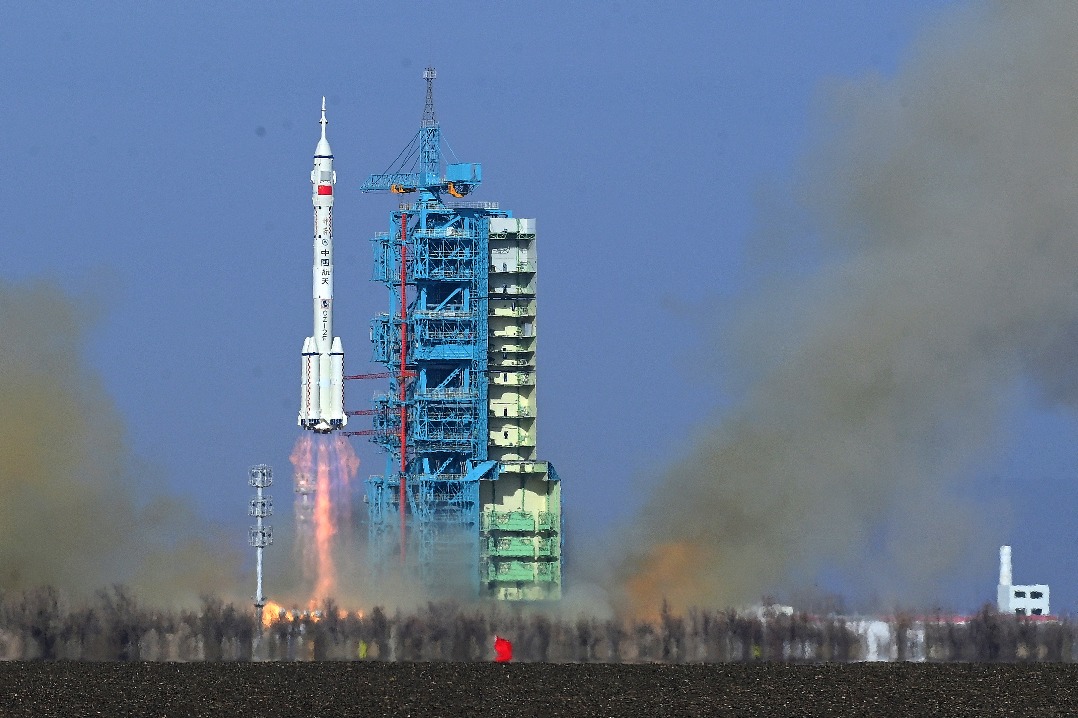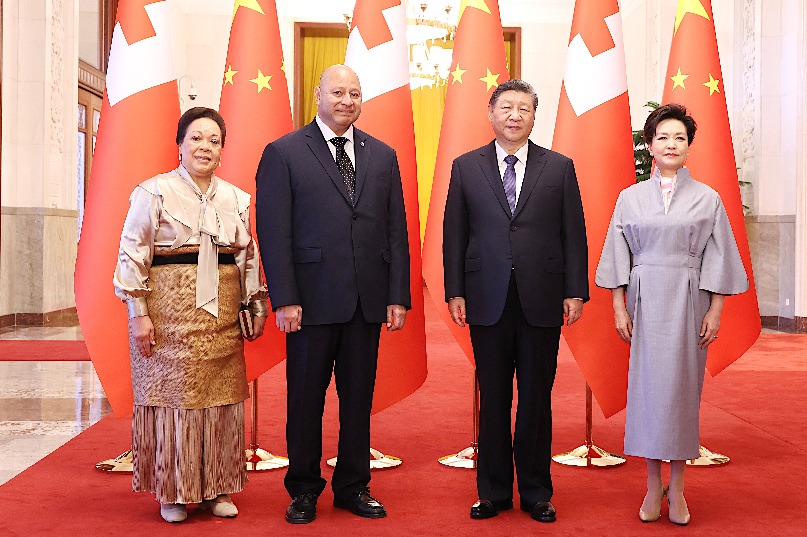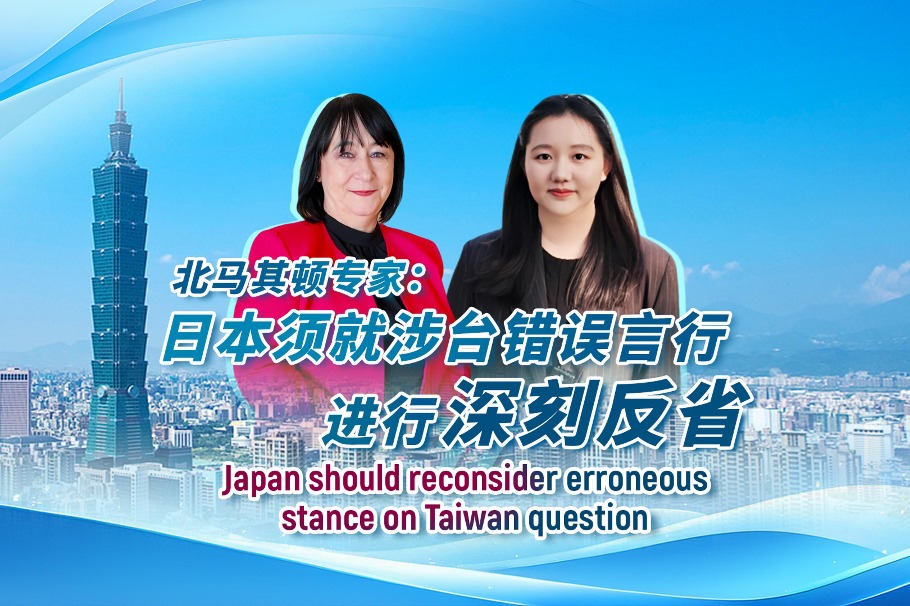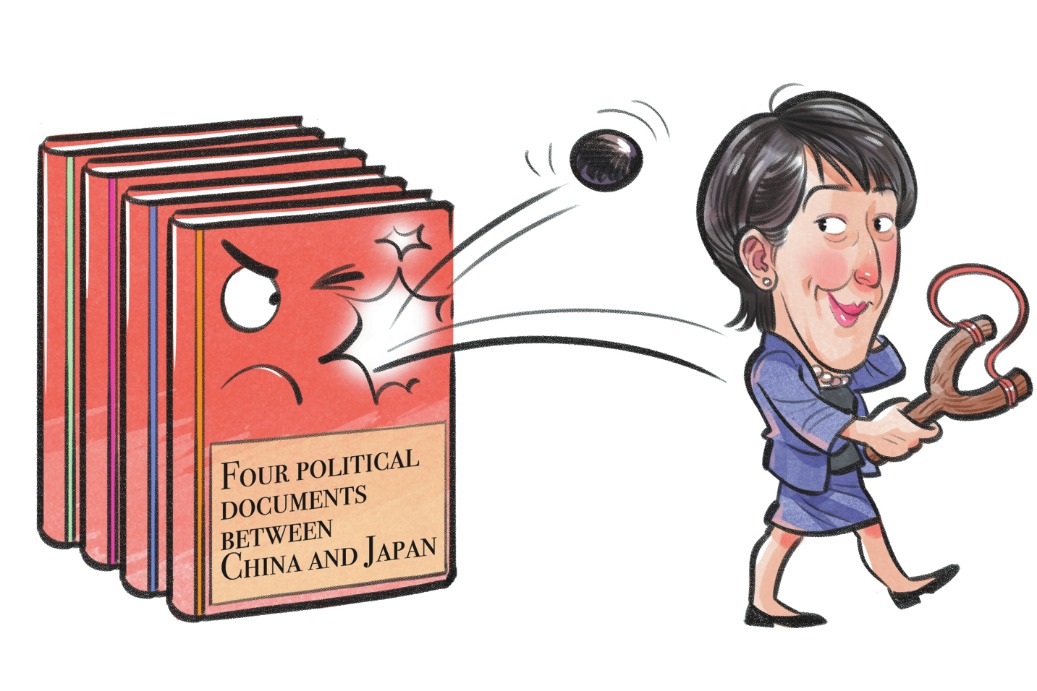Tokyo only digging deeper hole for itself by trying to justify its untenable stance: China Daily editorial

The latest move by the Japanese government shows that it has not done any serious soul-searching about why the remarks on China's Taiwan region by Japanese Prime Minister Sanae Takaichi have been strongly condemned and opposed by China.
In response to a letter that China's permanent representative to the United Nations, Fu Cong, sent to UN Secretary-General Antonio Guterres on Friday, criticizing Takaichi's remarks as interference in China's internal affairs and calling for her retraction of the remarks, Japan's Ambassador to the United Nations Kazuyuki Yamazaki submitted a letter of "rebuttal" to the UN chief on Monday.
That's absurd.
Takaichi's erroneous and dangerous remarks on the Taiwan question clearly reveal the dangerous toxicity of Japan's historical revisionism and resurgent militarism. As Fu rightly said in his letter, referring to Takaichi's remarks, this is "the first time Japan has expressed ambitions to intervene militarily in the Taiwan question", and "the first time Japan has issued a threat of force against China".
Her remarks constitute a grave violation of international law and the basic norms governing international relations, seriously undermine the postwar international order, and represent an open provocation to the more than 1.4 billion Chinese people and to the peoples of other Asian countries that were once victimized by Japanese aggression.
More importantly, Takaichi's remarks on Taiwan are only part of her scheme to rid Japan of the postwar institutional restrictions prohibiting the country from seeking remilitarization. Despite this, in his response to Fu's letter, Yamazaki resorted to playing with diplomatic parlance in a bid to cover up the provocative and interventionist nature of Takaichi's remarks, whitewashing her push for Japan's remilitarization as "self-defensive".
Although the Takaichi government is forgetful about history, the wounds inflicted by Japan upon its neighboring countries, especially China, have never fully healed and they are not subject to such selective amnesia.
For a long time, the Chinese nation has adopted a return-good-for-evil approach to deal with relations with Japan in the hope that it will change its ways. Beijing has consistently urged Tokyo to draw the right lessons from history. But the Takaichi government's performance since it took office last month shows clearly that China has been casting pearls before swine.
If, as Yamazaki alleged, "Japan's position on Taiwan has not changed", the Takaichi government is obliged to explain exactly what its position on the Chinese island is. How come an internal affair of China's can be a "survival-threatening situation" for Japan that suffices to prompt armed intervention?
Takaichi has long maintained improper contacts with "Taiwan independence" separatists. There are justifiable grounds for questioning whether Japan is now proactively encouraging and emboldening such forces under her leadership. By trying to portray the Taiwan Strait situation as a "contingency for Japan", Takaichi is using the Taiwan question as a pretext for Japan's remilitarization.
Instead of proving the Takaichi government's innocence, Yamazaki's letter to the UN chief further testifies to the malign nature of Takaichi's remarks.
That Takaichi's remarks were provocative and dangerous cannot be denied. The historical record and the four political documents between China and Japan that laid the political foundation for their relations give Japan no room in which to maneuver.
Given what she said, as Fu noted in his remarks at the UN General Assembly's plenary meeting on Security Council reform last week, "how can we trust Japan's professed commitment to peaceful development? How can the international community trust Japan to uphold fairness and justice? How can we trust Japan to shoulder the responsibility of maintaining international peace and security?"
How the Taiwan question is resolved is a matter for the Chinese people and brooks no foreign interference. If Japan dares to attempt an armed intervention in the cross-Strait situation, it would be an act of aggression. China would respond by exercising its right of self-defense under the UN Charter and international law to resolutely defend its sovereignty and territorial integrity.
Rather than compounding its wrongs by trying to disguise its intentions with word games, Tokyo should strictly honor the commitments it has made on the Taiwan question, immediately cease its provocations and retract Takaichi's erroneous and dangerous remarks.


































